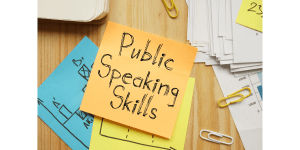Welcome to my latest blog post about Written Communication! In today’s fast-paced world, written communication is more important than ever before. Whether you’re sending an email to a colleague, writing a letter to a client, or drafting a proposal for a potential business partner, the way you communicate in writing can have a huge impact on the success of your communication. This post will cover various types of written communication, including Emails, Letters, Memos, Reports, Proposals, Articles, Blogs, and Press releases. By the end of this post, you’ll have a better understanding of how to communicate effectively in writing, no matter what the situation. So sit back, relax, and get ready to learn!
Emails

Emails are a crucial part of written communication in today’s digital age. They are used for everything from sending formal business proposals to catching up with friends and family. However, writing effective emails is a skill that not everyone has mastered. Here are some tips to help you write clear, concise, and professional emails that get your message across effectively:
Keep it Simple

When it comes to emails, simplicity is key. Keep your message short and to the point, and avoid using complex language or unnecessary details. Use simple and straightforward language that is easy to understand, and you will be much more likely to get a response.
Engage the Reader

Your email should grab the reader’s attention from the very beginning. Use an engaging subject line that accurately reflects the content of your message, and open your email with a friendly greeting that sets the tone for the rest of the message. Make sure your message is interesting and valuable to the reader, and you will be more likely to get a response.
Use the Active Voice

Using the active voice in your emails makes your message more direct, clear, and concise. This means using subject-verb-object sentence structures and avoiding passive voice constructions. Using the active voice helps your reader understand what actions they need to take, and it makes your message more engaging.
Keep it Brief

Emails should be short and sweet. Avoid rambling on and on or including too much detail. Instead, focus on the key points you want to make and keep your message brief and to the point. This makes it easier for the reader to understand your message and respond quickly.
Use Rhetorical Questions

Using rhetorical questions in your emails can be a great way to get your reader to engage with your message. These are questions that are not meant to be answered, but instead are designed to make the reader think about the topic at hand. This can be a great way to get the reader’s attention and encourage them to read on.
Incorporate Analogies and Metaphors
Analogies and metaphors can be a great way to explain complex ideas and concepts in a way that is easy to understand. Use these literary devices sparingly, but when used effectively, they can help your reader better understand your message and make it more memorable.
Conclusion
In conclusion, writing effective emails is all about keeping your message simple, engaging, and direct. By following these tips, you can create emails that effectively communicate your message and get the results you need.
Letters: A Timeless Form of Written Communication
When was the last time you received a handwritten letter in the mail? In today’s digital age, the art of letter writing has become a lost form of communication. However, letters are a timeless and valuable means of written communication that should not be forgotten. Writing a letter allows you to express yourself in a way that cannot be achieved through an email or text message. The process of selecting the perfect stationery, carefully crafting your words, and addressing the envelope by hand shows the recipient that you value their time and attention. In addition, letters have a personal touch that cannot be replicated through digital means. The recipient can hold onto the physical letter and read it over and over again, savoring the words and memories it contains. A letter can become a cherished keepsake that is passed down through generations. Moreover, letters are a great way to stay in touch with loved ones who are far away. They can provide a sense of comfort and connection that cannot be achieved through a quick phone call or social media post. In conclusion, letters are a valuable and timeless form of written communication that should not be forgotten. Whether it’s a love letter, a thank-you note, or just a friendly hello, taking the time to write a letter can make a lasting impact on the recipient. So go ahead, pick up a pen and some paper, and start writing!
Memos

Memos are a type of written communication that serves as a tool for transmitting information quickly and efficiently within an organization. They are usually used to convey information about policies, procedures, events, or changes in the workplace. Memos are also used to request action or to provide feedback on work-related matters. They are essential for effective communication in any organization and help to ensure that everyone is on the same page with regards to important issues.
One of the benefits of memos is that they are concise and to the point, making it easier for the recipient to quickly grasp and understand the message. Additionally, memos can be archived for future reference, which can be useful in the event of a dispute or when reviewing past decisions.
When writing a memo, it is important to follow a few guidelines. First, make sure to clearly state the purpose of the memo in the subject line. This will help the recipient to quickly understand the message and prioritize accordingly. Second, use a professional tone and avoid using jargon or technical terms that may not be familiar to everyone. Third, be concise and avoid unnecessary details that may distract from the main message.
Overall, memos are an effective tool for written communication in the workplace. They provide a quick and efficient way to convey important information and ensure that everyone is on the same page. By following some simple guidelines, anyone can write an effective memo that will help to improve communication and productivity in the workplace.
The Importance of Reports in Written Communication

Reports are an essential form of written communication in any organization. They are used to communicate important information, findings, and recommendations to stakeholders, managers, and other interested parties. Reports can be used to analyze data, evaluate performance, and make informed decisions. In this article, we will explore the importance of reports in written communication and their role in facilitating effective decision-making. One of the most significant benefits of reports is that they provide a structured format for presenting information. Reports typically include an introduction, main body, and conclusion, which makes it easy for the reader to navigate and understand the information presented. Reports also tend to use headings, subheadings, and bullet points to break down complex information into manageable sections. This structure helps to engage the reader and ensure that the information is presented clearly and concisely. Another important aspect of reports is that they are evidence-based. Reports are usually based on data, facts, and evidence, rather than opinions or assumptions. This means that they are objective and provide an accurate representation of the information being presented. Reports can also be used to identify trends, patterns, and areas for improvement, which can be used to inform decision-making and drive organizational change. Reports also play a vital role in facilitating effective communication between different stakeholders. For example, reports can be used to communicate complex technical information to non-technical stakeholders, such as managers or clients. Reports can also be used to provide updates on project progress, identify risks and opportunities, and make recommendations for improvement. This enables stakeholders to make informed decisions based on accurate and up-to-date information. In conclusion, reports are an essential form of written communication in any organization. They provide a structured format for presenting information, are evidence-based, and facilitate effective communication between different stakeholders. Whether you are analyzing data, evaluating performance, or making recommendations for improvement, reports are an essential tool for driving organizational change and achieving success.
Proposals

When it comes to business, proposals are an essential part of written communication. A proposal is a document that outlines a solution to a problem or a plan of action. They are used to persuade and convince the recipient to take a particular course of action. It can be a daunting task to write a proposal, but it can also be an opportunity to showcase your skills and expertise. Proposals must be well-structured, concise, and easy to understand. The first step is to identify the problem you are trying to solve and then come up with a solution. The proposal should also include a timeline, budget, and resources needed to implement the plan. One of the most critical aspects of a proposal is the executive summary. The executive summary should be a brief overview of the entire proposal, highlighting the main points and benefits of the plan. It should be compelling and engaging, encouraging the recipient to read on. When writing a proposal, it is essential to keep in mind the target audience. The proposal should be tailored to their needs and interests. It should also be written in a language that is easy to understand, without using technical jargon or acronyms that may confuse the reader. In conclusion, proposals are an integral part of written communication. They are used to persuade and convince the recipient to take a particular course of action. Writing a proposal can be a daunting task, but it can also be an opportunity to showcase your skills and expertise. When writing a proposal, remember to keep it well-structured, concise, and easy to understand, and tailor it to the needs and interests of your target audience.
Articles

When it comes to effective written communication, articles can be a powerful tool in your arsenal. Articles are a way to share your thoughts and ideas with a wider audience and establish yourself as an authority in your niche. They also have the potential to drive traffic to your website or blog and increase your visibility online. But what makes a good article? First and foremost, it should be engaging and informative. Your article should provide value to your readers and keep them interested from start to finish. It should also be well-written and easy to understand, without any confusing jargon or technical terms. One way to ensure your articles are effective is to focus on your target audience. Who are you writing for? What are their interests and pain points? By understanding your audience, you can tailor your content to their needs and preferences, making it more likely that they will engage with your brand. Another key factor in creating effective articles is to use the active voice. This makes your writing more dynamic and engaging, and helps to keep your readers interested. You should also keep your writing brief and to the point, using rhetorical questions, analogies, and metaphors to add interest and engage your readers. In conclusion, articles are a powerful tool in your written communication toolkit. By focusing on your target audience, using the active voice, and incorporating engaging elements like rhetorical questions and metaphors, you can create high-quality content that will resonate with your readers and help you achieve your communication goals.
The Power of Blogging

Blogging is a powerful tool for written communication. With its casual tone and ability to connect with readers, it is an excellent platform to share ideas and opinions. The best part is that anyone can start a blog, regardless of their background or experience. Do you want to establish yourself as an expert in your field? Blogging can help you achieve that. By consistently publishing high-quality content, you can position yourself as a thought leader and gain credibility. But it’s not just about self-promotion. Blogging can also be used to educate and inform others. Are you passionate about a particular subject? A blog can be a great way to share your knowledge and insights with others who share your interests.

Blogging can also be a great way to improve your writing skills. The more you write, the better you become at it. Plus, blogging allows you to experiment with different writing styles and techniques, helping you to find your voice as a writer. Finally, blogging is a way to connect with others. By sharing your thoughts and ideas, you open yourself up to feedback and discussion from your readers. This can lead to valuable conversations and even new friendships.

In conclusion, blogging is a powerful tool for written communication. Whether you want to establish yourself as an expert, educate and inform others, improve your writing skills, or connect with like-minded individuals, blogging can help you achieve your goals. So why not start a blog today and see where it takes you?
Press Releases: Get Your Message Out There

Are you looking for a way to get your message out to the masses? Look no further than a press release. A press release is a written communication that is sent to members of the media to announce something newsworthy. It’s a great way to get publicity for your business or organization.

Writing a press release can be a little intimidating, but it doesn’t have to be. Start with a catchy headline that sums up your news in a few words. Then, use the first paragraph to expand on the headline and give more details. Be sure to answer the who, what, when, where, why, and how questions that journalists will want to know.
Remember, journalists are busy people, so keep your press release short and to the point. Stick to the facts and avoid using flowery language or industry jargon. And don’t forget to include contact information in case a journalist wants to follow up with you.
One of the benefits of a press release is that it can lead to earned media coverage. If a journalist is interested in your news, they may write a story about it or invite you for an interview. This can help you reach a wider audience and build credibility.

Think of a press release like a megaphone. It amplifies your message and helps you get heard. So, whether you’re launching a new product, hosting an event, or have some other news to share, consider using a press release to spread the word.
The Importance of Clear and Concise Written Communication

Written communication is an essential aspect of our personal and professional lives. Whether you’re sending an email to a colleague, writing a report, or crafting a social media post, clear and concise communication is key. In fact, effective written communication can mean the difference between success and failure in many areas of life. Think about the last time you received an email that was poorly written or unclear.
Did it leave you feeling frustrated or confused? Now, imagine that email was from a potential employer or client. Would you be likely to pursue a professional relationship with someone who can’t communicate clearly? Using simple language and avoiding jargon can make your written communication more accessible to a wider audience. It allows your message to be easily understood by people who may not be familiar with the technical terms or industry-specific language you’re using. Rhetorical questions can also be an effective way to engage your reader and encourage them to think critically. For example, “Have you ever received an email with so many acronyms that you needed a decoder ring to understand it?” This can prompt the reader to reflect on their own experiences and relate to the message you’re conveying.
Using analogies and metaphors can help you to explain complex ideas in a way that is easy to understand. For instance, “Our company is like a well-oiled machine, with each part working together seamlessly to achieve our goals.” This kind of language can help your reader to visualize your message and make it more memorable. In conclusion, clear and concise written communication is a must-have skill in today’s fast-paced and digital world. By keeping it simple, engaging your reader, and using rhetorical questions, analogies, and metaphors, you can communicate effectively and leave a lasting impression.
The Power of Written Communication
In conclusion, the world of written communication is vast and varied. From emails to press releases, each form of written communication serves a unique purpose and requires a specific tone and style. While some may argue that the rise of technology has made written communication less important, the truth is that clear and concise writing is still a vital skill in both personal and professional settings. Whether you are writing a memo to your boss or a blog post for your website, the key to effective written communication is to know your audience and tailor your message to their needs. By using the appropriate tone, language, and style, you can ensure that your message is received loud and clear. So, whether you are a seasoned professional or just starting out, take some time to brush up on your writing skills. With some practice and a bit of creativity, you can harness the power of written communication to achieve your goals and make a lasting impact.
Related Links:











